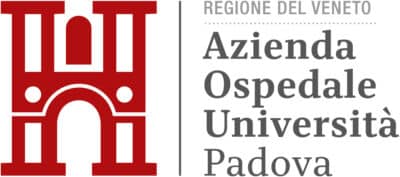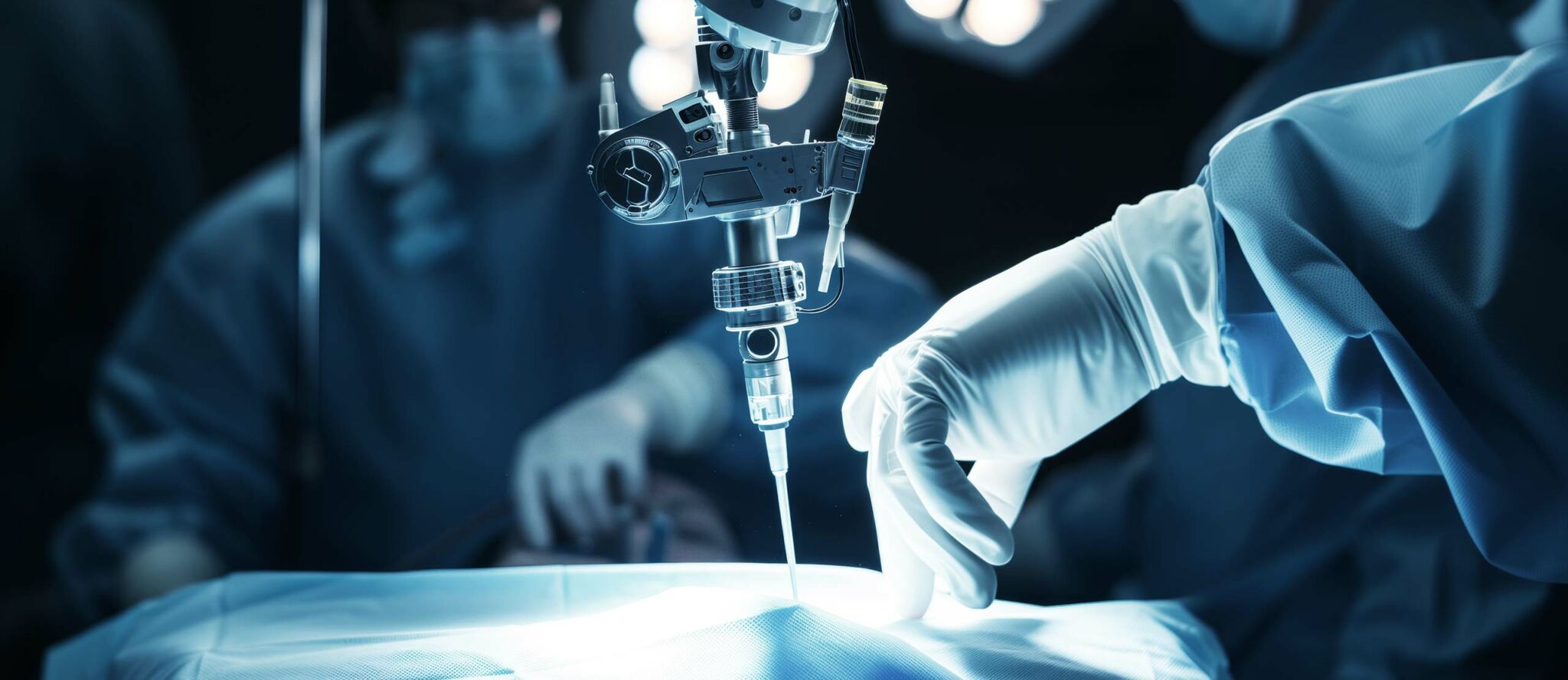

The Master in Robotic Surgery and Smart Systems (RoSI) provides in-depth training on robot-assisted mini-invasive surgery and on artificial intelligence applied to oncological and general surgery.
Through lectures and hands-on practice, and debates with national and international experts, this course describes the latest surgical techniques and technologies available to improve surgical efficiency and safety. Attendees will broaden their knowledge of robotic platforms, AI applied, fluorescence, real-time assistance models and biosensors.
The Master’s course provides hands-on workshops, critical assessment of technologies, and communication with other surgeons, promoting training and improvement of patient care quality.
The Master in Robotic Surgery and Smart Systems (RoSI) is an outstanding training opportunity for General Surgery professionals and residents, who wish to focus on advanced robot-assisted techniques in the treatment of oncological diseases.
Attendees will acquire advanced knowledge to:
- Integrate robotic techniques in their day-to-day clinical practice, and improve the care offer, efficiency and outcome of surgeries.
- Apply technology to improve treatment of abdominal oncological pathologies and the main clinically-relevant pathologies.
- Exploit the latest technological advancements for intra-surgery assistant, including AI-based systems for decision-making support and procedure optimization; intra-surgery fluorescence techniques, essential to improve tissue viewing and enhance surgery safety; and real-time assistance model, for greater control during surgeries.
Robotic surgery is taking a lead role as alternative to laparoscopic surgery, and its diffusion requires modern surgeons to train and get confident with it. Moreover, the diffusion of AI in the healthcare and surgical field can further improve clinical practice.
The Master in Robotic Surgery and Smart Systems (RoSI) is addressed to General Surgery experts and residents, who wish to explore the role and use of robotic platforms in oncological surgery, general surgery, and in new AI-based surgery technologies. Attendees will actively take part in discussing the methods, analysing and presenting clinical cases. Lessons have a strong practical component, entailing the use of videos and digital materials, and observation in the OR. National and international experts with a solid experience in robotic surgery and AI applications in the surgical field will intervene during the lessons.
At the end of the course, attendees will be able to improve patient care quality, and help increase the standards of oncological and mini-invasive robotic surgery.
The Master in Robotic Surgery and Smart Systems (RoSI) provides training on the following topics:
ROBOTIC SURGERY
- History and development of robot-assisted surgery: From the onset to the latest development, how robotic surgery was born and what are the platforms currently available and those being developed.
- Basic techniques: OR set-up, materials and devices, technical actions.
- Stomach surgery: Robotic approach to malignant stomach disease.
- Colon and rectum surgery: Robotic approach to colon and rectum surgery
- The role of robotic assistance in surgery for chronic inflammatory bowel diseases (IBD): Robot-assisted surgical treatment of bowel diseases in Crohn’s Disease and Ulcerative Colitis.
- Hepato-bilio-pancreatic surgery and liver transplant: robot-assisted surgical transplant for malignant liver and pancreas disease
- Urologic surgery: Role of robotic surgery in malignant kidney, bladder and urinary tract diseases.
- Gynaecological surgery: Role of robotic surgery in malignant gynaecological disease.
- Multidisciplinary surgical pelvis approach: advanced multi-pool surgery techniques for advanced malignant pelvis diseases.
- Breast surgery: Recent robotic surgery applications to treat malignant breast diseases.
- Wall surgery: Robot platform application to correct wall defects.
- Single-port robots: Single-port robot platforms. Developments and current applications
- Ethics, economy and sustainability of robot systems: How the robotic approach affects the Doctor-Patient relationship, company policies and the environment.
SMART SYSTEMS
- Fundamentals of machine learning: Basic notions for clinical applications.
- Radiomics: AI-based advanced diagnostics for radiologists to strengthen the diagnosis.
- Artificial intelligence surgery: From smart devices to smart OR, how the surgical practice is changing.
- Computer vision and real-time imaging: The role of enhanced visualization techniques in the OR. Image-based training, simulation and visualization tools.
- Endoscopy and AI: Robotic systems for endoscopy and machine learning to improve the diagnosis.
- Biosensors: New post-surgery monitoring tools.
- Telesurgery: Development of remote telesurgery systems. Current and future applications.
The Master includes 300 hours of theoretical/hands-on lessons. Lessons will be held on weekday afternoons, remotely. Lesson days will be defined and agreed upon by the Course Director, Professors and Attendees.
Attendees will have the chance to attend robotic surgeries as observants, in the ORs of the Padua University Hospital.
Small-group hands-on simulations on simulators and workshops will also be held in person.
- Prof. Imerio Angriman, General Surgery 3, DISCOG, UniPD
- Prof. Francesco Bianco, Division of General, Minimally Invasive & Robotic Surgery, University of Illinois at Chicago, USA
- Prof. Giorgio E. Bonacchini, Dip. DEI, UniPD
- Prof. Patrizia Burra, Director of Gastroenterology and Multivisceral Transplants, DISCOG, UniPD
- Dr. Francesco Celotto, General Surgery 3, AOPD
- Prof. Umberto Cillo, Director of Hepato-Bilio-Pancreatic Surgery AOPD, Director of DISCOG, UniPD
- Prof. Fabrizio Dal Moro, Director of Urology AOPD, DISCOG, UniPD
- Dr. Giovanni Ferrari, Director of General Oncological and Mini-Invasive Surgery, Niguarda Hospital
- Dr. Isabella Frigerio, Hepato-Bilio-Pancreatic Surgery, Pederzoli Hospital (VR)
- Dr. Guglielmo Gazzetta, Istituto di Candiolo IRCCS (TO)
- Prof. Andrew Gumbs, Dir. Artificial Intelligence Surgery all’Hôpital Antoine Béclère, Assistance
- Publique-Hôpitaux de Paris, France
- Dr. Isacco Maretto, General Surgery 3, AOPD
- Prof. Emilio Quaia, Istituto di Radiologia, DIMED, UniPD
- Prof. Carlo Saccardi, Obstetrics-Gynaecology Clinic, Dep. SDB, UniPD
- Prof. Barbara Seeliger, IRCAD, Research Institute against Digestive Cancer, Strasbourg, France
- Prof. Alessandro Sperduti, Mathematics Department, UniPD
- Prof. Gaya Spolverato, Director of General Surgery 3 AOPD, DISCOG, UniPD
- Prof. Roberto Tozzi, Director of Obstetrics-Gynaecology Clinic, Dep. SDB, UniPD
The general ranking of merit for the academic year 2025/26 will be published on the Italian page of this Master according to the timing provided in the Call.
Information
FAQ
No, OR activities will be observation-only.
During the lessons, workshops and small group simulations will be held, with training material and instruments.
There will be one final exam, encompassing all the modules, on a date to be agreed on at the end of the course.
Attendees must attend at least 70% of the lessons.
No more than 30% of absences will be allowed.

